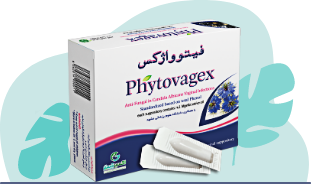

Antifungal and vaginal antiseptic, including vaginal candidiasis
Suppository (2.5 gr)
Phytovagex suppository is made from Nigella sativa oil with the scientific name of Nigella sativa.
One Vaginal suppository (pessary) every night, for 7 nights
This product has antifungal and antimicrobial properties and is used to treat fungal infections of fungal origin, including vaginal candidiasis (caused by Candida albicans) and another microbial vaginitis. It is antifungal and is used in the treatment of vaginal infections caused by Candida albicans.
Anti-fungal and vaginal antiseptic, including vaginal candidiasis.
If you are allergic to Nigella sativa or other ingredients in Phytovagex suppositories, it is forbidden to use the product. It is contraindicated in children and teenagers. Consumption in people under 12 years of age is not recommended due to the lack of adequate studies to prove the safety of the product.
There is no contraindication during breastfeeding. During pregnancy, start taking it only after consulting your doctor.
Keep the medicine at a temperature below 30. C and away from moisture and children.
No case has been reported so far.
The antifungal and antibacterial effects of Nigella sativa at the Pharmacological Research Center of Medicinal Plants of Mashhad University of Medical Sciences have been proven under the supervision of a group of experts and have been used for the first time in the world as vaginal suppositories to treat fungal infections. According to clinical studies and comparison with a chemical drug such as clotrimazole, this drug has a more appropriate and is more effective in resolution with the mentioned drug. Besides, side effects such as burning and inflammation during use are less common in this drug. No microbial or fungal resistance has been reported to this drug.